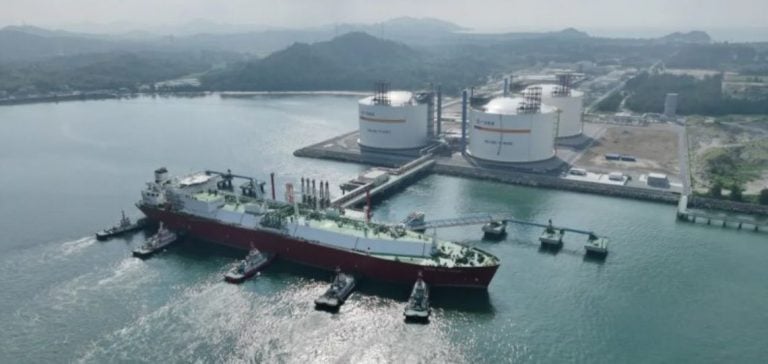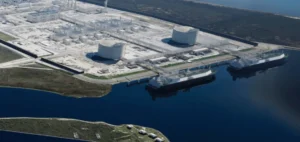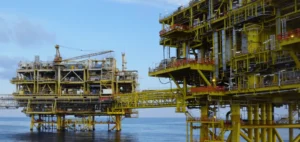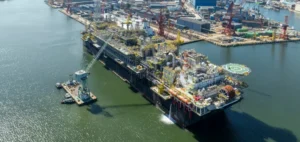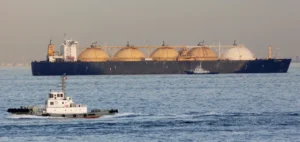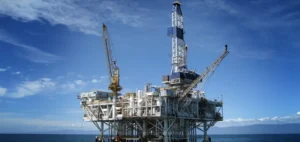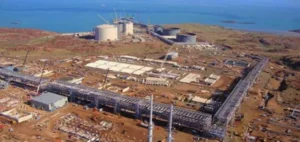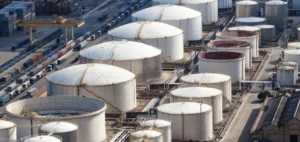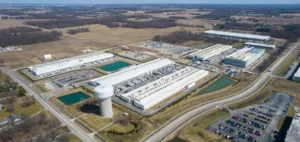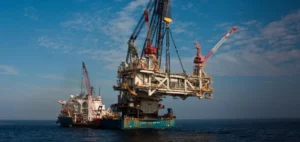The new liquefied natural gas (LNG) terminal in Huizhou, Guangdong province, China, starts commercial operations with a capacity of 4 million tonnes per year.
Built by Guangdong Energy Group, this infrastructure enables the import and storage of large volumes of LNG to meet the region’s growing energy demand.
This 20-year agreement between Guangdong Energy Group and ExxonMobil enables the American company to secure 1.8 million tonnes of LNG annually.
The terminal provides ExxonMobil with strategic access to stable volumes of LNG, essential for its growing industrial needs in China.
ExxonMobil, which has no direct equity interest in the terminal, plans to use these volumes to supply its chemical complex currently under construction in Huizhou, close to the terminal.
Full commissioning of this complex is scheduled for 2025.
This operation is part of a long-term approach to securing the energy resources needed by industrial facilities in China, where demand for gas continues to grow.
Key infrastructure for Guangdong province
Guangdong Energy Group’s terminal is equipped with three 200,000-cubic-meter LNG storage tanks and a quay capable of handling LNG carriers with capacities of up to 266,000 cubic meters.
This infrastructure plays a key role in supplying Guangdong province, which remains China’s largest gas consumer.
In response to growing demand for gas for industry and domestic consumption, Guangdong has increased its import capacity in recent years, reaching a total annual capacity of 32.6 million tonnes for all existing facilities.
The Huizhou terminal has already welcomed its first delivery of LNG from the United Arab Emirates during its trial phase.
This diversified supply is crucial to ensure continuity of deliveries and meet local demand, while limiting the risks associated with fluctuations in the international LNG market.
Strategic positioning for ExxonMobil
ExxonMobil’s agreement to use this terminal is part of a strategy to ensure a reliable and constant supply of LNG over the long term.
The Huizhou Chemical Complex project represents a major investment for the company, with start-up scheduled for 2025.
The proximity of the LNG terminal will enable ExxonMobil to reduce logistics costs and improve the efficiency of its operations.
This project also illustrates the importance of the Chinese market for the energy majors.
China, the world’s second-largest importer of LNG, continues to expand its reception capacity, offering foreign companies opportunities for long-term strategic partnerships.
Securing gas supplies is essential to support local industries, while offering foreign partners like ExxonMobil privileged access to a fast-growing market.
Outlook for China’s LNG market
The commissioning of the Guangdong terminal comes at a time of growing energy demand in China.
As the country strives to reduce its dependence on coal and diversify its supply sources, LNG is emerging as an essential transitional solution.
Facilities such as those at Huizhou reinforce the country’s ability to import gas securely and support its industrial growth.
In this context, international energy companies such as ExxonMobil play a crucial role in gas supply.
By entering into long-term agreements with local partners such as Guangdong Energy Group, they ensure the stability of their own projects, while participating in the country’s energy transformation.
ExxonMobil’s positioning at the Huizhou terminal demonstrates the importance of vertically integrated operations in an increasingly competitive market.

